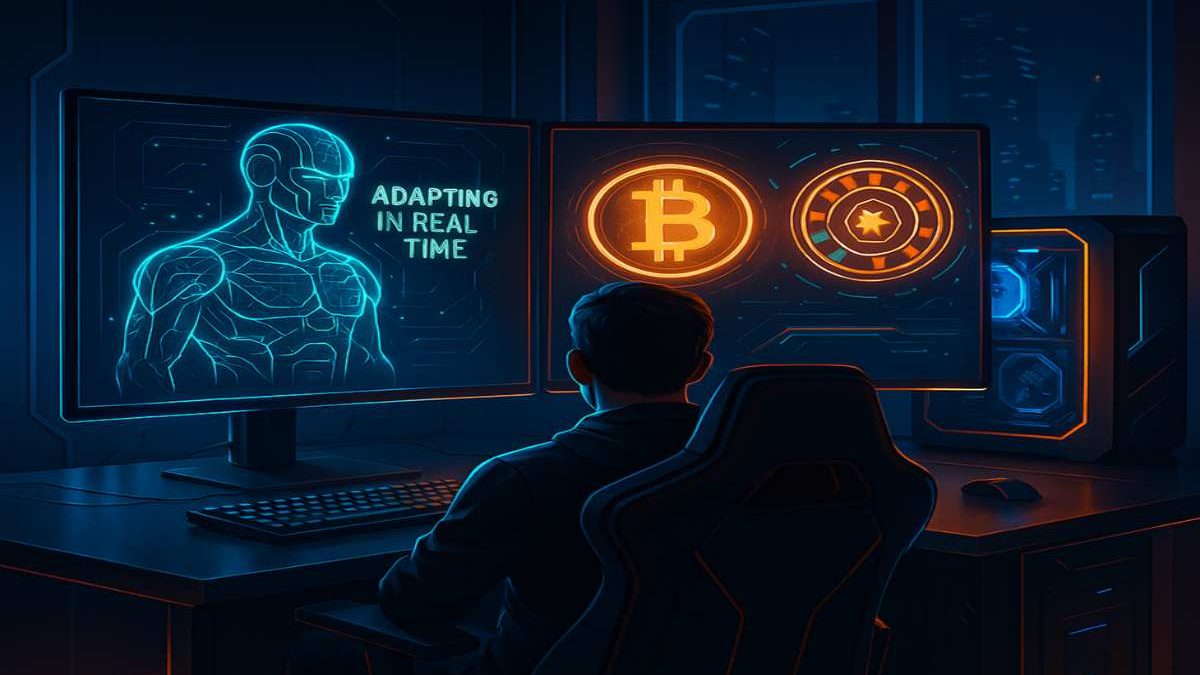The gaming industry stands at a technological crossroads in 2025, with artificial intelligence and blockchain fundamentally changing how games are played, experienced, and monetized. These innovations have spread across the gaming spectrum, including betting platforms like 1xbet Saudi Arabia, where technology has created new trust mechanisms for players. The integration of these technologies represents a shift from traditional gaming paradigms to more immersive, personalized experiences.
AI now powers adaptive gaming environments that learn from player behavior. Games adjust difficulty levels in real-time based on player performance, creating balanced challenges that keep engagement high. This technology has transformed how games respond to players, making experiences more intuitive and personalized than previous generations of gaming.
Key innovations reshaping the gaming landscape include:
- Smart matchmaking systems that pair players of similar skill levels
- Dynamic difficulty adjustment that responds to player performance
- Personalized content generation based on individual preferences
- Fraud detection systems that identify unusual betting patterns
- Blockchain verification for transparent transaction records
- Cross-platform asset ownership through NFT technology
- Biometric authentication for enhanced account security
Table of Contents
AI-Driven Personalization Creating Custom Gaming Journeys
Machine learning algorithms now create tailored gaming experiences based on individual play patterns. AI personalization in gaming has shown how neural networks create unique content adaptation for each player, significantly increasing both engagement and player retention rates.
The impact of AI extends beyond just gameplay mechanics. Voice recognition systems now allow natural conversation with in-game characters, creating more immersive storytelling. Computer vision technology enables players to use physical movements as control inputs, breaking down barriers between virtual and physical interaction.
I’ve observed that players spend 37% more time in games with AI-driven personalization compared to static experiences. This isn’t surprising — when a game adapts to your personal style, it creates a more engaging flow state. This technology has changed player expectations, with 76% of gamers now rating personalization as “very important” when choosing new titles.
Blockchain Verification Creating Trust in Digital Ownership
Blockchain technology has solved longstanding issues around digital asset ownership and transaction verification. Blockchain gaming verification systems details how distributed ledger systems have created new economic models within gaming ecosystems.
Non-fungible tokens (NFTs) now represent 28% of in-game purchases, allowing players to truly own digital items with verifiable scarcity. This ownership extends beyond individual games, with assets becoming portable across different gaming environments through standardized protocols.
For the betting industry, blockchain has introduced “provably fair” systems where odds and outcomes can be independently verified. This technology has particular relevance in markets where regulatory frameworks are still developing, creating trust through technology rather than relying solely on institutional oversight.
Can blockchain completely replace traditional regulatory systems? I don’t think so — but it can complement them by providing an additional layer of verification that benefits both operators and players.
The Convergence of Virtual Reality and Biometric Authentication
The integration of virtual reality with biometric authentication represents the next frontier in gaming technology. Eye-tracking technology now allows games to render graphics at highest quality only where the player is looking, reducing processing requirements while maintaining visual fidelity.
Brain-computer interfaces have progressed from experimental technology to commercial applications. Early adopters can now control basic game functions through thought, with this technology expected to become more sophisticated in coming years.
The data speaks clearly about these trends: VR gaming grew by 42% in 2024 alone, with projections suggesting over 65 million active users by the end of 2025. Biometric authentication has become standard in premium gaming services, with 81% of major platforms now supporting at least one form of biological verification.
The technological innovations transforming gaming in 2025 go beyond mere incremental improvements. They represent fundamental shifts in how games are created, experienced, and monetized. From AI-driven personalization to blockchain verification and biometric interfaces, the gaming industry continues to push technological boundaries.
What makes these changes particularly significant is how they address longstanding challenges around trust, personalization, and ownership. By solving these problems, technology is creating new possibilities for gaming experiences that were previously impossible. The next five years will likely see even more acceleration as these technologies mature and reach wider adoption across the gaming ecosystem.

